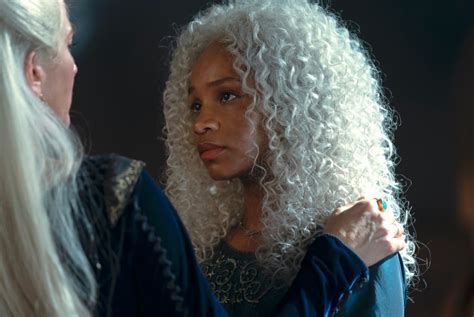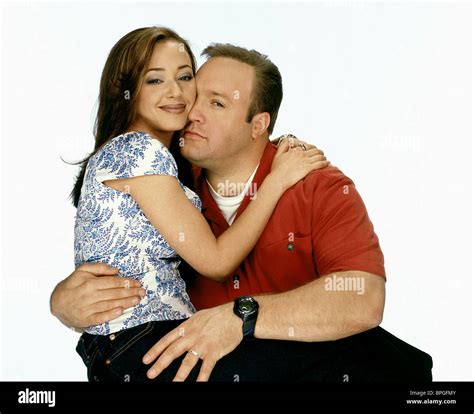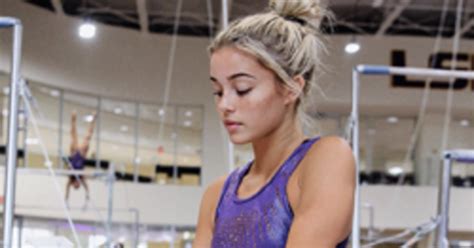
Love Island contestant Catherine Agbaje has vehemently defended herself after being removed from the dating show due to allegations of racism and bullying, labeling the accusations “completely false” and “very upsetting.”
Catherine Agbaje, the recently ejected “Love Island” contestant, has issued a strong denial regarding allegations of racism and bullying that surfaced following her departure from the popular reality show. Agbaje, 22, who was coupled with Elom Ahlijah-Wilson before their elimination, took to social media to address the claims, stating they were “completely false” and had caused her significant distress. The controversy stemmed from viewer reactions to her behavior towards other contestants, particularly during and after the Casa Amor recoupling.
Agbaje’s statement, posted on her Instagram Stories, directly confronts the accusations. “I want to address the false and very upsetting rumors that have been circulating about me since leaving the villa,” she wrote. “There have been multiple accusations, primarily regarding racism and bullying, and I want to state that these are completely untrue.” She expressed deep disappointment at being portrayed in such a negative light, emphasizing the disconnect between the online narrative and her actual character.
The allegations against Agbaje gained traction across social media platforms, with many viewers criticizing her perceived treatment of fellow contestants, specifically Scott van-der-Sluis after she returned from Casa Amor with Elom. Some fans interpreted her reactions and comments as being racially motivated or indicative of bullying behavior. These criticisms escalated rapidly, prompting Agbaje to respond publicly to clear her name and set the record straight.
Agbaje further elaborated on the emotional toll the accusations have taken on her. “I am deeply hurt and saddened by the unfair and untrue assumptions that have been made about me,” she stated. “I want to be clear: I have never engaged in racism or bullying of any kind. It is not in my nature, and it is not something I would ever condone.” She asserted her commitment to treating everyone with respect and kindness, values she claims to have upheld both before and during her time on “Love Island.”
Agbaje also addressed the broader implications of the accusations, highlighting the damage that can be inflicted by unsubstantiated claims spread online. She urged viewers to be more mindful of the impact their words can have on individuals’ lives, particularly in the context of reality television, where editing and selective portrayal can easily distort reality. “The power of social media can be incredible, but it can also be incredibly destructive,” she noted. “I hope that this situation serves as a reminder for people to think before they speak and to avoid making assumptions based on limited information.”
She thanked those who have supported her and acknowledged the impact of social media commentary. “The volume of negativity and false accusations has been overwhelming and has taken a toll on my mental health,” Agbaje admitted. “However, I am grateful for the outpouring of support I have received from those who know me and understand my true character.”
In closing, Agbaje reiterated her commitment to moving forward and focusing on the positive aspects of her “Love Island” experience. She expressed hope that the controversy would subside and that she could be judged based on her actions rather than on unfounded allegations. “I am determined to put this behind me and to continue living my life with integrity and compassion,” she concluded. “I hope that others will do the same.”
This incident underscores the growing scrutiny faced by reality television contestants, who are often subjected to intense public criticism and online harassment. It also highlights the importance of responsible social media use and the need for greater awareness of the potential consequences of spreading misinformation. The “Love Island” producers have not yet issued a statement regarding the allegations against Agbaje, but the controversy is likely to prompt further discussion about the ethical responsibilities of reality television programming and the duty of care owed to its participants.
The unfolding situation also shines a light on the complexities of interpreting behavior within the highly-edited and pressurized environment of reality TV. What might appear as bullying or racism on screen could be the result of selective editing, misinterpretations, or simply moments of heightened emotion. The challenge for viewers lies in distinguishing between genuine misconduct and the constructed narratives that often characterize reality television.
The aftermath of Agbaje’s “Love Island” experience serves as a cautionary tale about the impact of public perception and the challenges of navigating the world of reality television fame. While the allegations against her remain unproven, the controversy has undoubtedly taken a significant toll on her personal well-being and public image. Her strong denial and appeal for understanding reflect the difficult position in which many reality TV contestants find themselves, caught between the allure of fame and the potential for intense scrutiny and misrepresentation.
Further context to the situation involves a deeper dive into the specific incidents that triggered the allegations. Much of the criticism centered around Agbaje’s reactions and comments after she returned from Casa Amor with Elom, while Scott remained single. Some viewers perceived her dismissive attitude towards Scott as unnecessarily harsh and even racially motivated, pointing to the fact that Scott is Welsh and some online comments suggested a cultural or racial bias. These accusations were amplified by social media users who dissected Agbaje’s every word and gesture, often taking them out of context or interpreting them in the most negative light possible.
Another factor contributing to the controversy was the perceived double standard in how Agbaje was treated compared to other contestants. Some fans argued that other islanders had engaged in similar or even more questionable behavior without facing the same level of backlash. This perception of unfair treatment fueled further outrage and intensified the scrutiny of Agbaje’s actions.
The incident also raises questions about the role of “Love Island” producers in shaping the narrative and influencing viewer perceptions. Reality television is inherently manipulative, with producers selectively editing footage and orchestrating situations to create drama and maintain audience engagement. This raises the possibility that Agbaje’s portrayal on the show was not entirely accurate or representative of her true character, and that the producers may have inadvertently contributed to the negative perceptions that ultimately led to the allegations against her.
Furthermore, the controversy highlights the broader issue of diversity and representation on reality television. While “Love Island” has made some progress in terms of including contestants from diverse backgrounds, there are still concerns about the lack of authentic representation and the potential for stereotypes to be perpetuated. The allegations against Agbaje underscore the importance of creating a more inclusive and equitable environment on reality TV, where contestants are not subjected to unfair scrutiny or held to different standards based on their race or ethnicity.
In the wake of the controversy, it is crucial for viewers to engage in critical thinking and avoid making hasty judgments based on limited information. Social media can be a powerful tool for raising awareness and holding individuals accountable, but it can also be a breeding ground for misinformation and online harassment. It is essential to approach online discussions with empathy and respect, and to avoid perpetuating harmful stereotypes or engaging in personal attacks.
The Agbaje situation also underscores the need for better mental health support for reality TV contestants. The intense pressure and scrutiny that come with being on a show like “Love Island” can have a significant impact on mental well-being, and it is crucial for producers to provide adequate resources and support to help contestants cope with the challenges they face. This includes offering counseling services, providing media training, and educating contestants about the potential risks of online harassment.
Ultimately, the Agbaje controversy serves as a reminder of the complexities and challenges of navigating the world of reality television. It highlights the importance of responsible social media use, critical thinking, and the need for greater diversity and mental health support within the industry. While the allegations against Agbaje remain unproven, the incident has undoubtedly had a significant impact on her life and career. It is hoped that this situation will prompt further discussion and reflection on the ethical responsibilities of reality television programming and the duty of care owed to its participants.
Expanded Context and Analysis:
To fully understand the situation surrounding Catherine Agbaje, it’s necessary to delve into the dynamics of “Love Island” itself, the power of editing, and the specific allegations that have been leveled against her.
-
The Nature of “Love Island”: “Love Island” is a dating reality show where contestants, known as “Islanders,” are isolated in a villa and must couple up to avoid being eliminated. The show thrives on drama, romantic entanglements, and personality clashes. Viewers are given the power to vote for their favorite couples, ultimately deciding who wins the grand prize. This element of public voting creates a highly competitive environment where Islanders are constantly aware of their public image.
-
The Power of Editing: Reality television is far from “real.” Shows like “Love Island” are heavily edited, with hours of footage condensed into 45-minute episodes. This process allows producers to construct narratives, highlight certain personality traits, and manipulate viewer perceptions. Selective editing can easily distort reality, making contestants appear to be acting in ways that are out of character or misrepresenting the context of their actions. This is a critical factor to consider when evaluating the allegations against Agbaje. A brief interaction, when taken out of its full context, can easily be misinterpreted.
-
Casa Amor Recoupling: A significant point of contention arose during the Casa Amor recoupling. Casa Amor is a separate villa where the male Islanders are sent to meet a new group of girls, while the female Islanders are joined by new male contestants in the main villa. This is designed to test existing relationships and introduce new romantic possibilities. The recoupling ceremony is a dramatic event where Islanders must decide whether to stick with their original partner or couple up with someone new. Agbaje chose to recouple with Elom, leaving Scott single. Her subsequent interactions with Scott after the recoupling were heavily criticized by viewers. Some interpreted her comments and attitude towards Scott as being dismissive, insensitive, and even racially motivated.
-
Specific Allegations of Racism: The allegations of racism were fueled by a combination of factors. Some viewers pointed to the fact that Scott is Welsh and suggested that Agbaje’s behavior was influenced by a cultural or racial bias. These claims were amplified by social media users who dissected Agbaje’s every word and gesture, often taking them out of context or interpreting them in the most negative light possible. It’s important to note that these allegations are based on interpretations of Agbaje’s behavior, not on direct evidence of racist statements or actions.
-
Allegations of Bullying: The allegations of bullying stemmed from the perception that Agbaje was being unnecessarily harsh and dismissive towards Scott. Some viewers felt that she was deliberately trying to humiliate him or make him feel bad about being single. These accusations were further fueled by social media posts and online discussions, where Agbaje was often portrayed as a villain.
-
The Impact of Social Media: Social media played a significant role in amplifying the controversy surrounding Agbaje. Platforms like Twitter, Instagram, and TikTok became battlegrounds for debate, with viewers expressing their opinions, sharing clips of Agbaje’s behavior, and engaging in heated arguments. The speed and reach of social media allowed the allegations to spread rapidly, putting immense pressure on Agbaje and creating a hostile online environment.
-
The Role of “Love Island” Producers: The “Love Island” producers have a significant influence on the narrative of the show. They select which footage to include in the episodes, which storylines to focus on, and how to portray the contestants. This raises the possibility that Agbaje’s portrayal on the show was not entirely accurate or representative of her true character. It is possible that the producers inadvertently contributed to the negative perceptions that ultimately led to the allegations against her.
-
Mental Health Considerations: The intense pressure and scrutiny that come with being on a show like “Love Island” can have a significant impact on mental well-being. Contestants are often subjected to online harassment, public criticism, and intense media attention. It is crucial for producers to provide adequate resources and support to help contestants cope with these challenges. This includes offering counseling services, providing media training, and educating contestants about the potential risks of online harassment.
Conclusion:
The controversy surrounding Catherine Agbaje highlights the complexities and challenges of navigating the world of reality television. The allegations against her, while serious, are based on interpretations of her behavior within the highly-edited and pressurized environment of “Love Island.” While it is important to hold individuals accountable for their actions, it is also crucial to avoid making hasty judgments based on limited information and to consider the potential impact of online harassment. The Agbaje situation serves as a reminder of the importance of responsible social media use, critical thinking, and the need for greater diversity and mental health support within the reality television industry. Ultimately, the goal should be to create a more inclusive and equitable environment where contestants are treated with respect and dignity. Frequently Asked Questions (FAQ):
Q1: What are the specific accusations against Catherine Agbaje from “Love Island”?
A1: Catherine Agbaje has faced allegations of racism and bullying following her departure from “Love Island.” These accusations primarily stem from her behavior after the Casa Amor recoupling, particularly her interactions with Scott van-der-Sluis. Some viewers interpreted her actions and comments as dismissive, insensitive, and potentially racially motivated, leading to accusations of bullying and racism. These accusations are based on viewer interpretations of her actions and comments within the context of the show, not on direct evidence of discriminatory statements or actions.
Q2: How has Catherine Agbaje responded to these allegations?
A2: Catherine Agbaje has vehemently denied the accusations of racism and bullying. In a statement posted on her Instagram Stories, she labeled the rumors as “completely false” and “very upsetting.” She stated that she has never engaged in racism or bullying of any kind and expressed disappointment at being portrayed in such a negative light. She also emphasized the emotional toll the accusations have taken on her, stating that they have been overwhelming and have impacted her mental health.
Q3: What role has social media played in this controversy?
A3: Social media has played a significant role in amplifying the controversy surrounding Catherine Agbaje. Platforms like Twitter, Instagram, and TikTok have become platforms for debate, with viewers expressing their opinions, sharing clips of Agbaje’s behavior, and engaging in heated arguments. The speed and reach of social media allowed the allegations to spread rapidly, putting immense pressure on Agbaje and creating a hostile online environment. The negativity and false accusations on social media have been overwhelming, as stated by Agbaje herself.
Q4: What is Casa Amor and how does it relate to the allegations against Catherine Agbaje?
A4: Casa Amor is a separate villa introduced during “Love Island” to test the existing relationships between the contestants. It involves separating the male and female Islanders, sending them to different villas, and introducing them to new potential partners. The recoupling ceremony after Casa Amor is a dramatic event where Islanders must decide whether to stick with their original partner or couple up with someone new. Catherine Agbaje chose to recouple with Elom Ahlijah-Wilson after Casa Amor, leaving Scott van-der-Sluis single. Her subsequent interactions with Scott were heavily criticized by viewers, who interpreted her behavior as dismissive and insensitive, sparking the allegations of racism and bullying.
Q5: What are the broader implications of this situation for reality television and its participants?
A5: The controversy surrounding Catherine Agbaje highlights several broader implications for reality television and its participants. First, it underscores the intense scrutiny and pressure that reality TV contestants face, both during and after their time on the show. Second, it raises concerns about the potential for selective editing and manipulation by producers to create drama and influence viewer perceptions. Third, it emphasizes the need for better mental health support for reality TV contestants, who are often subjected to online harassment and public criticism. Finally, it highlights the importance of responsible social media use and critical thinking when engaging with reality television content. The situation serves as a reminder of the complexities and challenges of navigating the world of reality television and the need for greater diversity and ethical considerations within the industry.









